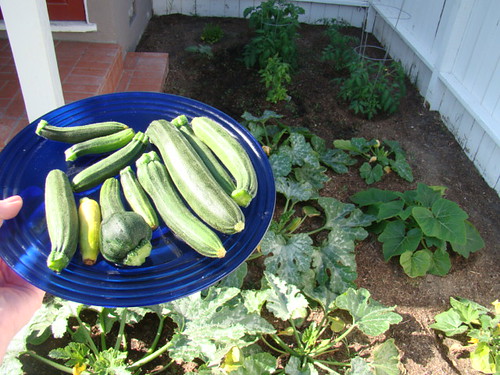If you’re looking to have a healthier diet, think about starting an organic garden. However, you will need to put forth an effort in order to make it grow. Perhaps you are hesitating about where to begin.
If you have an organic garden and children, plant some everbearing strawberries for them. Kids delight in the idea of growing things and seeing how things change over time. Explain every step to your child and he or she will hang on to your every word.
Asprin will actually help your plants out by killing diseases. Dissolve one and one-half aspirins into two gallons of cold water, and use it to fortify your plants. Then spray your plants with this mixture to stave off diseases. Spraying should be one time every three weeks.
The ideal temperature to set your thermostat for indoor plants is between 65-75 degrees Fahrenheit during the daylight hours. Plants require a warmer climate to grow. If you aren’t wanting your house to be this warm in the winter, you can use a heat lamp on the plants.
If you are growing your organic plants inside of your home or office, it is vital to make sure that the right amount of light reaches them. Ideally, these plants should be kept in a room that offers natural light from a window or glass door. If you simply must have a plant that has higher requirements for sunlight, you can use indoor UV lamps.
Cover your flower beds with two or three inches of compost or organic mulch. This practice is an easy way to discourage weeds, retain moisture, and add valuable nutrients to your garden. Mulch will also improve the general appearance of your flower beds.
Work efficiently in your garden. One of the biggest time wasters is not keeping track of your tools and having to look for them every time you need them. Have all of your tools gathered and prepared for use before you work in the garden, and make sure to put them away neatly. Even something like a carpenter’s tool belt or some cargo jeans work well to keep tools organized.
Coffee grounds are good for your soil. Coffee grounds add many nitrogenous nutrients to the soil that will benefit your plants. Many times, nitrogen is a limiting nutrient in soils. Adding coffee grounds or compost can add nitrogen to your soils will help your plants grow tall and healthy.
Don’t let your organic gardening tasks stack up for very long. If you’re too busy to do all those little things each day, there are some small steps you can take to not have all that work build up on you. For instance, pluck weeds while you take your dog outside or before getting in your car.
Use an old laundry basket to bring your fresh produce in from the garden. The laundry basket will function as a makeshift strainer for the fruits and vegetables. If you hose off your produce in the laundry basket, the water will leave the basket through the holes in the sides.
Within your composting heap, ensure that there is an equal split of dried and green plant materials. Garden wastes, such as grass clippings, are classified as green materials. The leaves you rake in the fall, straw, sawdust and the like are dry material. Avoid ashes, meat, charcoal and diseased plants in your compost.
Creating a trap with beer can help reduce the number of slugs in your garden. Bury a glass jar in your garden so that its open mouth is level with the top of the soil. Next, fill the jar with beer until there is only one inch left below the mouth of the jar. The beer will attract the slugs and they will be trapped in the jar.
A successful organic garden is the result of hard work and a good understanding of the principles involved. For the best possible results, one must be willing to put forth a lot of energy into their gardening. Hopefully this article has you well prepared for your endeavor into the relaxing and productive world of organic gardening.
–
